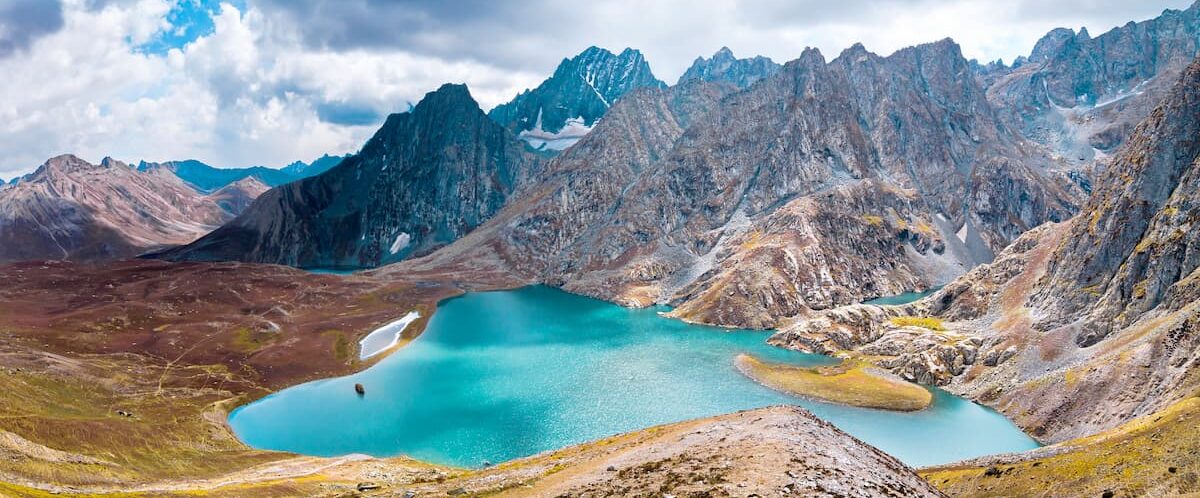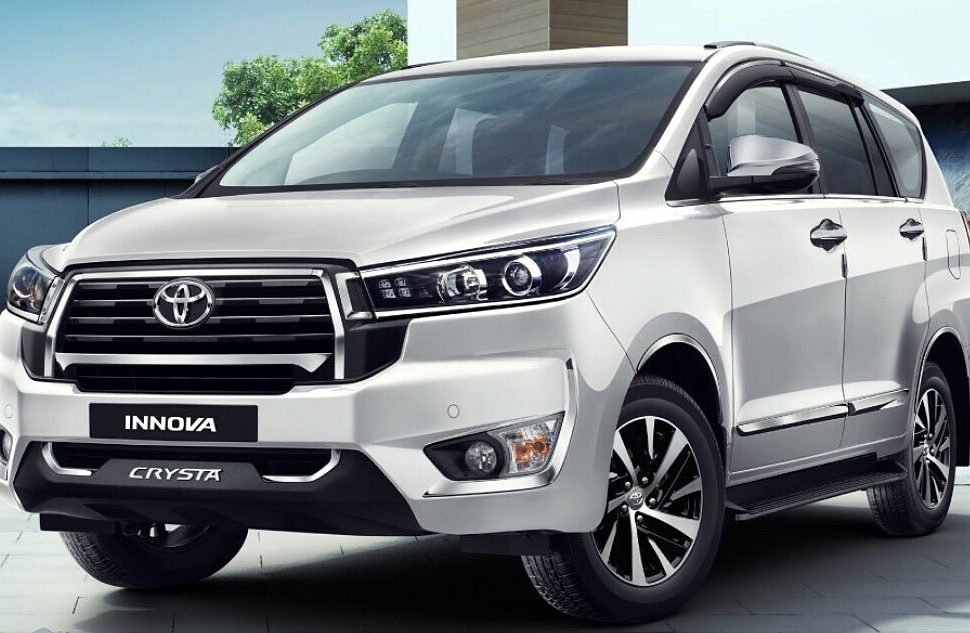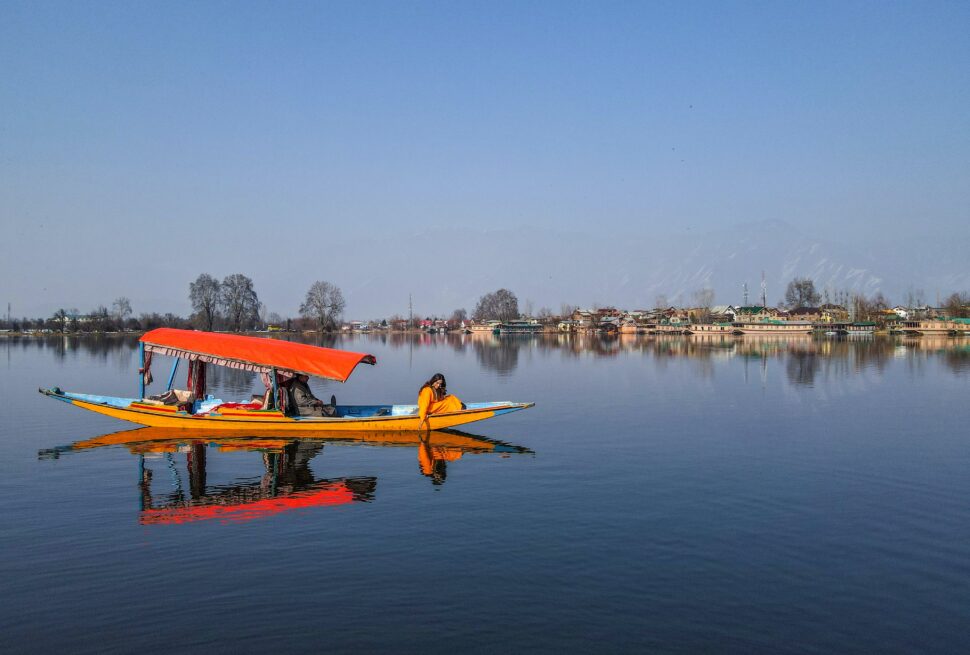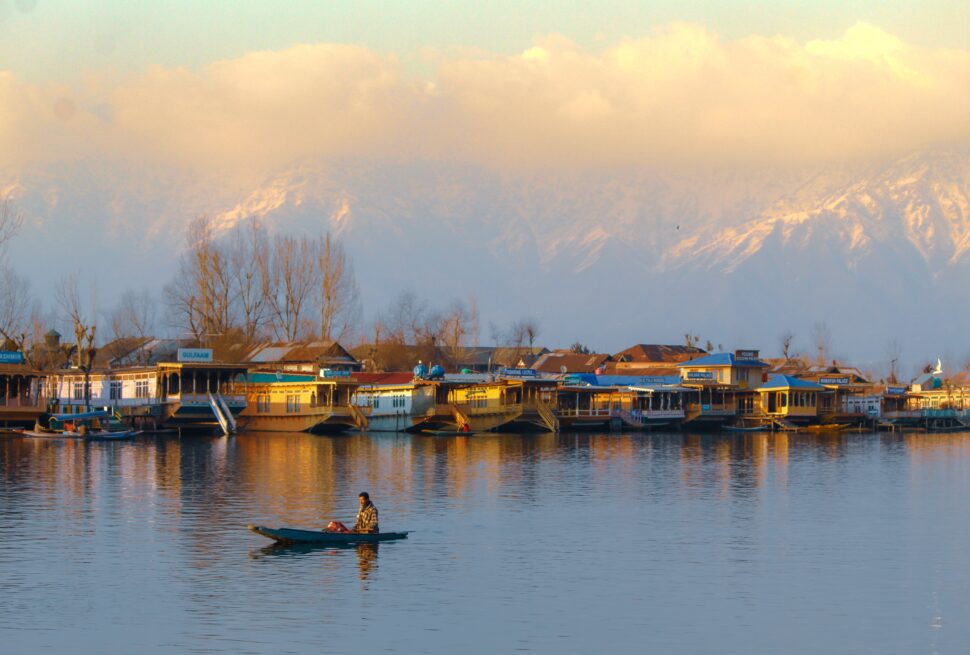Kashmir Great Lakes Trek is a beautiful and challenging trek that takes you through some of the most stunning landscapes in the Himalayas. Here’s what you need to know about this trek, including how to reach, the best time to visit, and the packages available:
How to Reach:
The starting point of the Kashmir Great Lakes Trek is the town of Sonamarg, which is well connected by road to Srinagar. You can hire a taxi from Srinagar to reach Sonamarg, which takes about 2 hours. The nearest airport is in Srinagar, which is also well connected to major cities in India.
Best Time to Visit:
The best time to do the Kashmir Great Lakes Trek is from July to September, which is when the weather is mild and the trekking routes are open. During this time, you can expect clear skies, pleasant temperatures, and stunning views of the surrounding mountains.
Kashmir Great Lakes Trek Packages
There are several tour operators that offer Kashmir Great Lakes Trek packages. These packages usually include transportation to and from Srinagar, camping equipment, food, and the services of a guide and support staff. Here are some popular packages:
- Kashmir Great Lakes Trek – This is a 7-day trek that takes you through some of the most stunning landscapes in the region, including Gangbal Lake, Nandkol Lake, and Vishansar Lake.
- Kashmir Great Lakes Trek with Tarsar Marsar – This is an 11-day trek that combines the Kashmir Great Lakes Trek with a visit to the Tarsar and Marsar lakes, which are located in the nearby Dachigam National Park.
- Kashmir Great Lakes Trek with Gadsar Pass – This is a 9-day trek that takes you through the beautiful Gadsar Pass, which offers stunning views of the surrounding mountains and valleys.
- Customized Packages – Some tour operators offer customized packages based on your preferences and requirements. You can choose the duration of the trek, the level of difficulty, and the destinations you want to visit.
Kashmir Great Lakes
Kashmir Great Lakes Trek is a popular and breathtaking trekking route in the Indian Himalayas. The trek is located in the picturesque Kashmir Valley and takes you through some of the most beautiful landscapes of the region. Here’s everything you need to know about the Kashmir Great Lakes Trek:
The Trek
The Kashmir Great Lakes Trek is a moderate to difficult level trek, spanning over 70 kilometers, and takes about 8 to 9 days to complete. The trek begins from the town of Sonamarg and goes through Nichnai, Vishansar, Gadsar, Satsar, Gangabal, and Naranag. The route is dotted with several high-altitude alpine lakes that are considered some of the most beautiful in the world. You’ll be amazed by the stunning views of the surrounding snow-capped peaks, glaciers, meadows, and pine forests.
Accommodation
The trek is usually done by camping, and you can hire camping gear from tour operators. There are several campsites along the route, and you’ll be amazed by the beautiful views from your campsite. You can also stay in basic guest houses in some villages.
Permits
To do the Kashmir Great Lakes Trek, you need to obtain a permit from the local authorities. You can apply for the permit online or through a tour operator. You’ll also need to carry a medical fitness certificate and an identity proof.
Tour Packages
There are several tour operators that offer Kashmir Great Lakes Trek packages. These packages usually include transportation to and from Srinagar, camping equipment, food, and the services of a guide and support staff. You can choose from a variety of packages based on your preferences and budget.
In conclusion, the Kashmir Great Lakes Trek is a beautiful and challenging trek that offers stunning views of the Himalayas and its surrounding landscapes. With several packages available, it’s easy to plan your trip and experience the beauty of this trek. So, if you’re a nature lover and adventure enthusiast, make sure to add the Kashmir Great Lakes Trek to your bucket list!
Table of Contents
Some frequently asked questions about the Kashmir Great Lakes Trek:
What is the best time to do the Kashmir Great Lakes Trek?
The best time to do the Kashmir Great Lakes Trek is from July to September when the weather is pleasant, and the trekking routes are open. During this time, the skies are clear, and the temperatures are mild, making it ideal for trekking.
How long does the Kashmir Great Lakes Trek take?
The Kashmir Great Lakes Trek takes about 8 to 9 days to complete, covering a distance of over 70 kilometers.
Is the Kashmir Great Lakes Trek difficult?
The Kashmir Great Lakes Trek is considered a moderate to difficult level trek. The trek involves steep ascents and descents, and trekking at high altitudes can be challenging. However, with proper preparation and training, the trek is doable for most trekkers.
Do I need a permit to do the Kashmir Great Lakes Trek?
Yes, you need to obtain a permit from the local authorities to do the Kashmir Great Lakes Trek. You can apply for the permit online or through a tour operator. You’ll also need to carry a medical fitness certificate and an identity proof.
Is it safe to do the Kashmir Great Lakes Trek?
Yes, the Kashmir Great Lakes Trek is safe as long as you follow the guidelines provided by the tour operator and take necessary precautions while trekking. It’s always recommended to trek with a guide or a group for safety reasons.
What is the accommodation like during the trek?
The trek is usually done by camping, and you can hire camping gear from tour operators. There are several campsites along the route, and you’ll be amazed by the beautiful views from your campsite. You can also stay in basic guest houses in some villages.
Can I do the trek on my own, or do I need a tour operator?
While it’s possible to do the trek on your own, it’s recommended to go with a tour operator. Tour operators provide experienced guides and support staff, transportation to and from Srinagar, camping equipment, and food, making the trek more comfortable and hassle-free.
What should I pack for the trek?
You should pack warm and comfortable trekking clothes, trekking shoes, a backpack, a sleeping bag, a waterproof jacket, a hat, sunscreen, sunglasses, and a water bottle. You should also carry a medical kit with essential medicines and a torch or headlamp with extra batteries.




